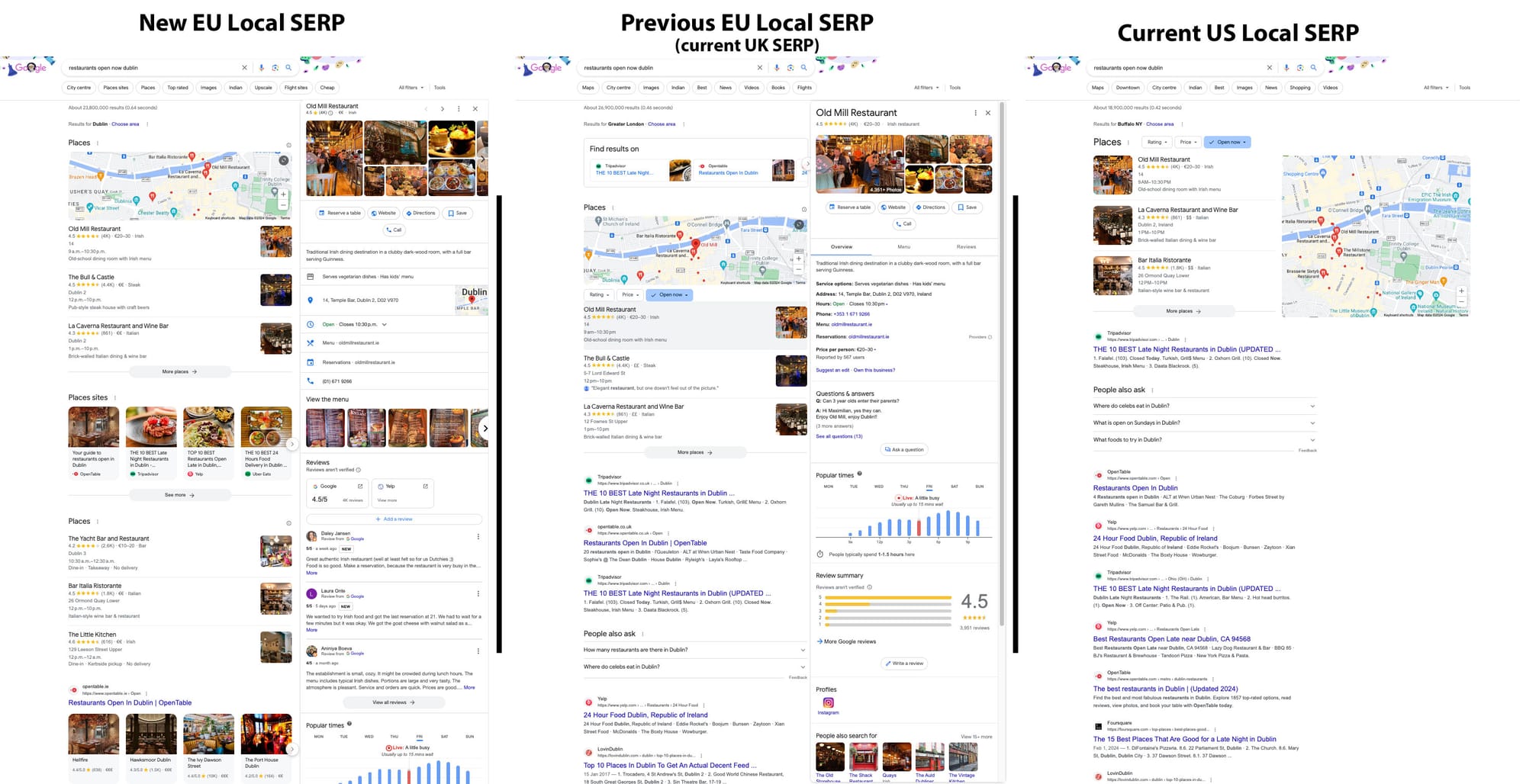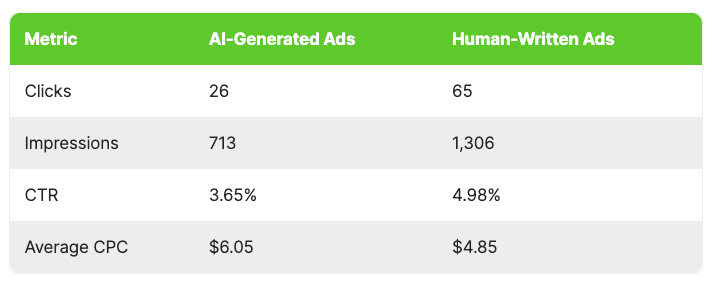Google: DMA Hurtz, Federal Privacy Law, 'Pepsi (Content) Challenge'

Google: DMA Hurting Local Biz
On Friday Google released some early information about the impact of its Digital Markets Act (DMA) compliance measures in Europe. (Mike and David were in Brussels and covered Google's compliance "workshop.") In a blog post, which is part explanation part argument, Google asserts its compliance measures – that were not specifically mandated by regulators but determined by Google itself – are having largely negative effects or unintended consequences. Google says that its changes to EU search results are driving "increased traffic to a small number of successful intermediary services and significantly less engagement with a wide range of businesses like airlines, hotels, local merchants and restaurants." Google cites third party data showing that direct hotel booking clicks are down by 30%. It also argues that consumers are unhappy with the changes (citing forums and message boards). Google further implies that "small businesses that don’t have a voice in the regulatory process" are also being harmed. Collectively, Google says, DMA compliance changes have brought about "adverse consequences" and encourages other countries not to follow Europe's lead.

Our take:
- Near Media's early user testing in the restaurants vertical in Ireland showed not much had changed post-DMA with user engagement.
- Google's familiar "SMBs/SMEs are being hurt/will be hurt" arguments are cynical, even disingenuous. Remedies are challenging. But ...
- Google is setting up a false dichotomy between 1) its version of DMA compliance and 2) the way things were. There are more options.
America's GDPR Arrives
After years of disagreement, unfruitful negotiations and now compromise, a comprehensive federal privacy bill was unveiled over the weekend. Called the American Privacy Rights Act of 2024 (bill text), the bill would create a single national privacy framework and standards that would preempt the patchwork of state privacy laws, a goal most tech companies support. It would still allow states to legislate in certain areas, including around healthcare data and financial privacy. The proposal is bipartisan and has a reasonable chance of passing, although it could see changes and amendments along the way. It gives consumers more control over their data and allows them to globally opt-out of targeting and tracking from a "single interface." It would also provide the right to sue companies for non-compliance with opt-out or data deletion requests. Collection of certain categories of information ("sensitive data") would require actual consent. A partial list of those includes: precise geolocation information, government IDs, financial accounts, health information, biometric information, information about sexual behavior, race, ethnicity and religion, among others.

Our take:
- After years of trying, this is indeed a breakthrough. And while passage probably has a better than 50% chance it's still not certain.
- There are ~15 U.S. states with comprehensive data privacy laws, not all of which have gone into effect. APRA would gut them all.
- While the FTC would enforce, civil litigation would be key to ensuring compliance. That option has been opposed by tech companies.
Content Challenge: Humans vs. AI
In January, Semrush released "Think Big with AI: Small Business Content Marketing in 2024." The sprawling document focused on AI adoption and usage. On page 97, there's a discussion comparing human-generated and AI content. Semrush conducted a kind of "Pepsi Challenge," involving head-to-head comparisons of blog and social media copy by people vs. AI on an array of topics. Users were asked which option they preferred without knowing more. AI content was preferred every time, though the margin of victory ranged between 6 and 30 points. Now a similar study, focused exclusively on Google Search ads copy, has found the opposite result. Human and AI generated ads were run on Google for eight weeks. The study concluded that "human-written ads significantly outperformed AI-generated ones ... The human-written ads achieved 45.41% more impressions and 60% more clicks, resulting in a significantly higher CTR of 1.33%." The analysis offers several potential explanations for the outcome: human creativity, adaptability and intuition, among others. But it's very interesting that these two similar, though not identical studies, produced opposite outcomes.

Our take:
- The human-written ads performed quite a bit better than AI. We don't know how experienced the humans involved were, which is important.
- It's not clear what to make of these two outcomes, except to say that AI may be more appropriate to use in some cases, not others.
- While it might be best to shun AI entirely in some contexts, the best-practice is AI + a high degree of human oversight.
Recent Analysis
- Near Media podcast episode 152: a Conversation with John Jantsch: How your agency can increase retention an profitability with a fractional CMO.
Short Takes
- Moz: How to overcome reviewphobia, for SMBs and their SEOs.
- SingleInterface to challenge listings/rep. management incumbents.
- If SGE owns the top of funnel, pivot to target the midfunnel.
- Why "ranch-style SEO" may replace "skyscraper" content.
- Cookie deprecation shifting budgets to CTV, PPC and social.
- TikTok to launch Instagram competitor: TikTok Notes.
- Microsoft announces new AI hub in London.
- Marketer trust in Google, Meta and Twitter ads declining.
- Uber Eats launches own short-form video feed a la TikTok.
- Meta to step up labeling of content generated or altered by AI.
- AI companies doing shady things in the quest for training data (NYT).
Listen to our latest podcast.

How can we make this better? Email us with suggestions and recommendations.

